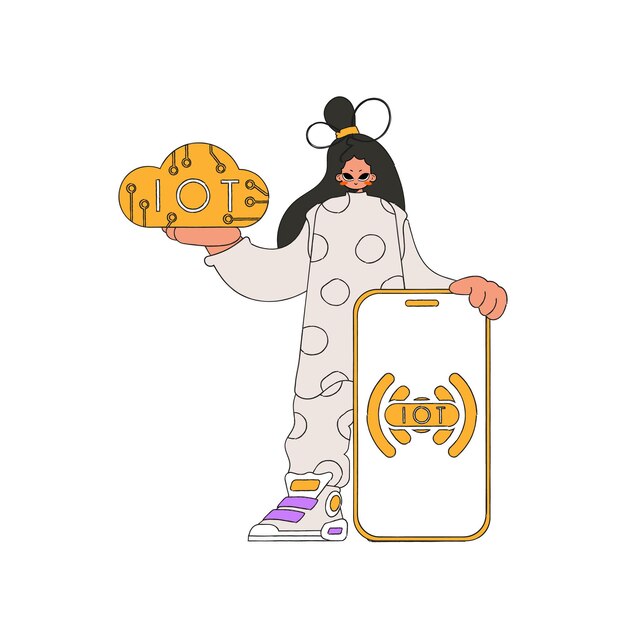Remote Work and Mental Health: 3 Apps to Reduce Stress

Remote work can significantly impact mental health; however, specialized apps can help reduce stress. This article explores three apps designed to mitigate stress levels and enhance mental well-being for remote workers within three months.
The rise of remote work has brought flexibility and convenience, but it also presents unique challenges to mental health. The constant connectivity, blurred lines between work and personal life, and feelings of isolation can contribute to increased stress levels. Fortunately, technology offers solutions. This article will explore three apps designed to help you reduce stress and improve your mental well-being as a remote worker within just three months.
Understanding the Link Between Remote Work and Mental Health
Remote work, while offering numerous benefits, can also pose significant challenges to mental health. The absence of a traditional office environment can blur the boundaries between work and personal life, leading to increased stress and burnout. Understanding these connections is the first step in mitigating negative impacts.
The Challenges of Remote Work
The transition to remote work isn’t always smooth. Many individuals find themselves grappling with various stressors that can affect their mental well-being. From managing distractions to dealing with isolation, the unique challenges of remote work necessitate proactive strategies for maintaining mental health.
- Isolation and Loneliness: Reduced face-to-face interaction can lead to feelings of isolation and loneliness, impacting social connections and overall well-being.
- Work-Life Imbalance: The absence of a clear separation between work and home can result in longer working hours and difficulty disconnecting, leading to burnout.
- Increased Stress Levels: Managing distractions, dealing with technology issues, and coping with job insecurity can contribute to higher stress levels.

Addressing these challenges requires a multifaceted approach. Creating a structured daily routine, establishing clear boundaries between work and personal time, and fostering social connections are crucial steps in promoting mental well-being in a remote work setting. Furthermore, leveraging technology, such as specialized apps, can provide additional support in managing stress and enhancing overall mental health.
App 1: Calm – Your Meditation and Mindfulness Companion
Calm is a leading app for meditation and mindfulness, offering a wide range of guided meditations, sleep stories, and relaxing music tracks. Designed to reduce anxiety and improve sleep quality, Calm provides tools to enhance mental well-being.
With its user-friendly interface and extensive library of content, Calm is an invaluable resource for remote workers seeking to manage stress and cultivate a sense of inner peace. Regular use of Calm can lead to improved focus, reduced anxiety, and better overall mental health.
How Calm Helps Reduce Stress
Calm’s various features are specifically designed to address common stressors associated with remote work. By incorporating mindfulness practices into your daily routine, you can gain a greater sense of control over your thoughts and emotions.
- Guided Meditations: Calm offers a wide selection of guided meditations, ranging from short daily meditations to longer, in-depth sessions. These meditations can help you center yourself, reduce anxiety, and improve focus.
- Sleep Stories: If you struggle with sleep problems, Calm’s sleep stories can help you relax and drift off to sleep more easily. These calming narratives are designed to soothe your mind and prepare you for a restful night.
- Relaxing Music: Calm provides a variety of relaxing music tracks and soundscapes that can help you create a peaceful and calming environment. Whether you’re working, meditating, or simply unwinding, these sounds can help reduce stress and promote relaxation.
Calm is a powerful tool for managing stress and improving mental well-being. By incorporating its features into your daily routine, you can experience significant improvements in your overall mental health. Regular practice can lead to long-term benefits, including reduced anxiety, improved sleep, and greater emotional resilience.
App 2: Headspace – Your Personal Guide to Mindfulness
Headspace is another popular app for mindfulness and meditation, offering a structured approach to learning meditation techniques. With its engaging animations and easy-to-follow guidance, Headspace makes mindfulness accessible to everyone, regardless of their experience level.
For remote workers, Headspace can be a valuable tool for managing stress, improving focus, and enhancing overall mental well-being. Incorporating Headspace into your daily routine can lead to increased self-awareness and emotional resilience.
Benefits of Using Headspace for Remote Work
Headspace offers a variety of sessions tailored to address the specific needs of remote workers. From managing distractions to improving productivity, Headspace provides practical tools to help you thrive in a remote work environment.
One of the key benefits of Headspace is its structured approach to learning mindfulness. The app’s guided meditations are designed to gradually introduce you to various meditation techniques, making it easy to incorporate mindfulness into your daily routine. This structured approach can be particularly helpful for those who are new to meditation or who struggle with consistency.
Headspace also offers a library of content focused on specific topics, such as stress management, productivity, and sleep. These targeted sessions can help you address specific challenges related to remote work. For example, if you’re struggling with procrastination, you can use Headspace’s productivity sessions to improve your focus and motivation.

By providing practical tools and guidance, Headspace can help you overcome the challenges of remote work and maintain a healthy work-life balance. Whether you’re looking to reduce stress, improve focus, or enhance your overall mental well-being, Headspace can be a valuable resource.
App 3: Moodfit – Personalized Mental Wellness Training
Moodfit is a unique app that offers personalized mental wellness training based on your specific needs and goals. Unlike generic meditation apps, Moodfit provides a comprehensive approach to improving your mental health through a combination of tools and techniques.
With its data-driven approach and personalized recommendations, Moodfit can help you identify your mental health challenges and develop tailored strategies for addressing them. This personalized approach can be especially beneficial for remote workers who may be struggling with specific issues such as anxiety, depression, or burnout.
How Moodfit Personalizes Mental Wellness
Moodfit’s personalized approach begins with an initial assessment to understand your current mental state. Based on your responses, the app creates a customized plan that includes a variety of tools and techniques.
- Mood Tracking: Moodfit allows you to track your mood throughout the day, helping you identify patterns and triggers that may be affecting your mental health.
- Personalized Exercises: The app offers a variety of exercises tailored to your specific needs, including cognitive behavioral therapy (CBT) techniques, mindfulness practices, and stress-reduction exercises.
- Insights and Analytics: Moodfit provides insights and analytics based on your data, helping you understand your progress and make adjustments to your plan as needed.
By using Moodfit’s personalized approach, remote workers can develop a deeper understanding of their mental health challenges and learn effective strategies for managing them. The app’s comprehensive approach can lead to significant improvements in your overall well-being.
Implementing These Apps for Optimal Results
While these apps offer powerful tools for managing stress and improving mental well-being, their effectiveness depends on consistent implementation. Integrating these apps into your daily routine requires a proactive approach and a commitment to prioritizing your mental health.
Tips for Consistency
Consistency is key to experiencing the full benefits of these apps. Here are some tips to help you integrate them into your daily routine:
- Set Specific Goals: Define clear goals for your mental health, such as reducing anxiety levels or improving sleep quality. This will help you stay motivated and track your progress.
- Schedule Dedicated Time: Allocate specific time slots in your daily schedule for using these apps. Treat these appointments as non-negotiable commitments.
- Create a Routine: Incorporate the apps into your existing routine, such as using them during your morning coffee or before bedtime.
By following these tips, you can successfully integrate these apps into your daily routine and experience the full benefits of their stress-reducing and mental-health-enhancing features. Remember, consistency is key to seeing lasting results. Even short, regular sessions can have a significant impact on your overall well-being.
Measuring Your Progress and Adjusting Your Strategy
Tracking your progress is an important part of any mental health journey. By monitoring your mood, sleep, and stress levels, you can gain valuable insights into what’s working and what’s not.
Using Data to Refine Your Approach
Data collected from these apps can provide valuable feedback for refining your mental health strategy. Here are some ways to use data to improve your approach:
- Identify Patterns: Look for patterns in your mood and stress levels. Are there specific times of day or activities that trigger negative emotions?
- Track Your Progress: Monitor your mood, sleep, and stress levels over time. Are you seeing improvements?
- Adjust Your Strategy: If you’re not seeing the desired results, don’t be afraid to adjust your approach. Experiment with different meditation techniques, exercises, or app features.
With consistent effort and a willingness to adapt your strategy, you can achieve significant improvements in your mental health and overall well-being as a remote worker.
| Key Point | Brief Description |
|---|---|
| 🧘♀️ Mindfulness | Practicing daily reduces stress. |
| 😴 Sleep Hygiene | Improves mood and focus. |
| 📊 Mood Tracking | Helps identify stress triggers. |
| 🎯 Personalized Plans | Tailored to individual needs. |
Frequently Asked Questions
Remote work can lead to isolation, blurred work-life boundaries, and increased stress due to the lack of social interaction and constant connectivity.
Apps provide structured tools for mindfulness, meditation, and mood tracking, offering accessible and convenient methods to manage stress and improve mental well-being.
Calm offers guided meditations, sleep stories, and relaxing music that help reduce anxiety and improve sleep, fostering relaxation and mental clarity for remote workers.
Headspace uses engaging animations and structured meditation sessions to improve focus, reduce distractions, and enhance overall productivity in a remote work environment.
Moodfit offers personalized mental wellness training based on individual needs, providing comprehensive tools for mood tracking, personalized exercises, and data-driven insights.
Conclusion
In conclusion, managing mental health while working remotely is crucial for overall well-being. By incorporating apps like Calm, Headspace, and Moodfit into your daily routine, you can proactively reduce stress and improve your mental state, enhancing your productivity and overall quality of life.





